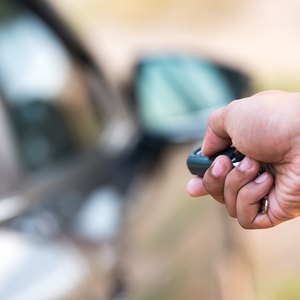
If you’re thinking of paying your auto loan off early, you’ll need to request the 10-day payoff amount from your lender. This sum is the amount you’ll actually have to pay to satisfy the terms of your auto loan, which is different from your current balance. The 10-day payoff includes any interest you owe through the date of your last installment payment, including any additional fees you may have incurred.
Tips
A 10-day payoff tells you how much money (including interest) you'll need to pay to have your car loan entirely paid off. This amount will differ from the balance you currently see on your loan.
Failure to Meet 10-Day Payoff
You won’t face any penalties for failing to meet a 10-day payoff. Simply requesting to know the amount doesn’t obligate you to pay it. However, due to fluctuating interest rates, this total is subject to change after the original 10 days are up. This means you’ll need to request the new amount after the original deadline has passed.
How to Get Your Title
After sending a check to the lender for the 10-day payoff amount, you’ll be able to get the title for your vehicle. This process varies by state, but in most cases the lien holder is responsible for notifying the state's department of motor vehicles that you have paid your loan off in full. It usually takes some time for the lender to do so, as it wants to make sure your payment clears before taking action and then must prepare the appropriate paperwork. Some states will mail you the title, and others require you to pick it up at a department of motor vehicles office. Check with your state's motor vehicles department to find the specific process for your state.
Advantages of an Early Payoff
The obvious reason to pay off your car loan early is to make room in your budget, but that's not the only benefit. Your credit score will likely improve when your car loan is paid off, as you’ll have less debt to your name. However, a history of making on time monthly payments also improves your score, so you’ll want to hold off on paying your auto loan until you’ve made 12 to 24 months of payments. You may also be able to save a great deal of money on your car insurance by paying your loan off early if the car is older or in bad shape. Lenders require you to have a certain level of coverage, which you’re free to reduce when your loan is paid off.
Disadvantages of an Early Payoff
There can be drawbacks to paying off your auto loan early. Lenders sometimes inflict a prepayment penalty that is greater than or equal to the cost of the amount lost in interest payments from an early payoff. If you’re thinking about paying your car loan off early by increasing your monthly payments, you’ll need to pay a significant amount, typically at least $100, to make a difference.
References
- Cars.com: I Want to Sell My Car, But I Still Owe Money
- Bankrate: Obtaining Your Car Title After Loan Payoff
- CarsDirect: Pay Off Car Loan Early - Benefits
- Lending Tree: Should I Pay Off My Car Loan Early or Not?
- New York State. "Automobile Owners Resource Center Obtaining a Lien Release on a Vehicle: What You Need to Know," Accessed Nov. 29, 2019.
Writer Bio
Laura Woods is a Los Angeles-based writer with more than six years of marketing experience. She has a Bachelor of Arts in communications from the University of Pittsburgh and an MBA from Robert Morris University.

